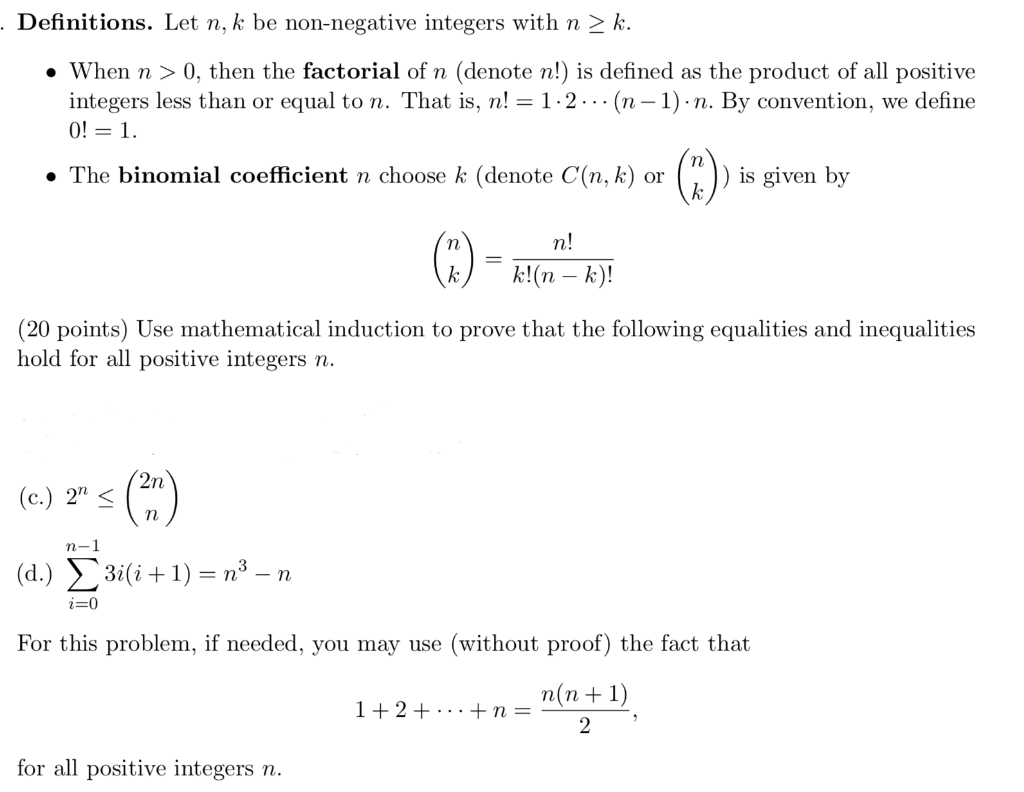Answered step by step
Verified Expert Solution
Question
1 Approved Answer
Definitions. Let n, k be non-negative integers with n > k. . When n > 0, then the factorial of n (denote n!) is defined

Step by Step Solution
There are 3 Steps involved in it
Step: 1

Get Instant Access to Expert-Tailored Solutions
See step-by-step solutions with expert insights and AI powered tools for academic success
Step: 2

Step: 3

Ace Your Homework with AI
Get the answers you need in no time with our AI-driven, step-by-step assistance
Get Started


